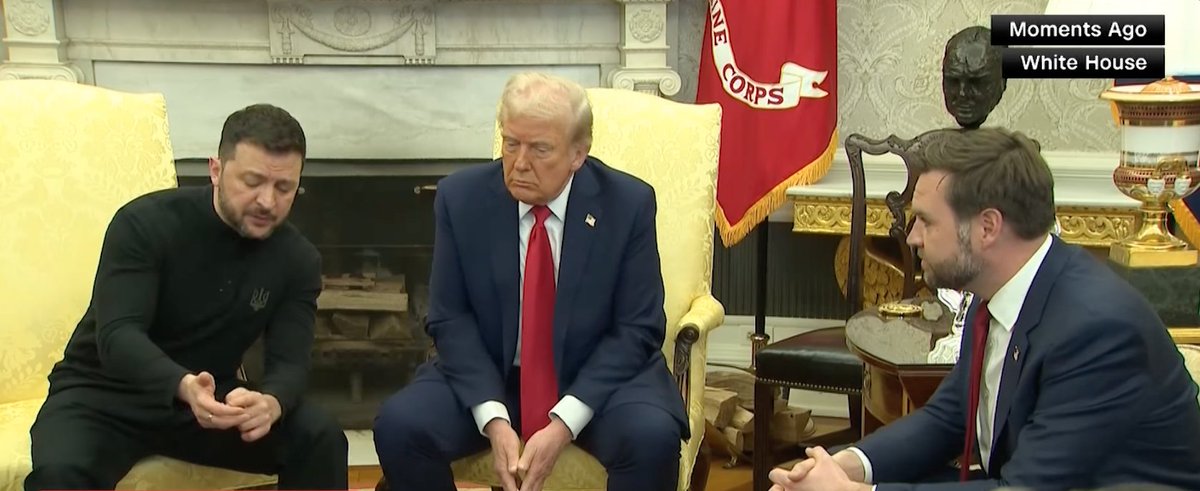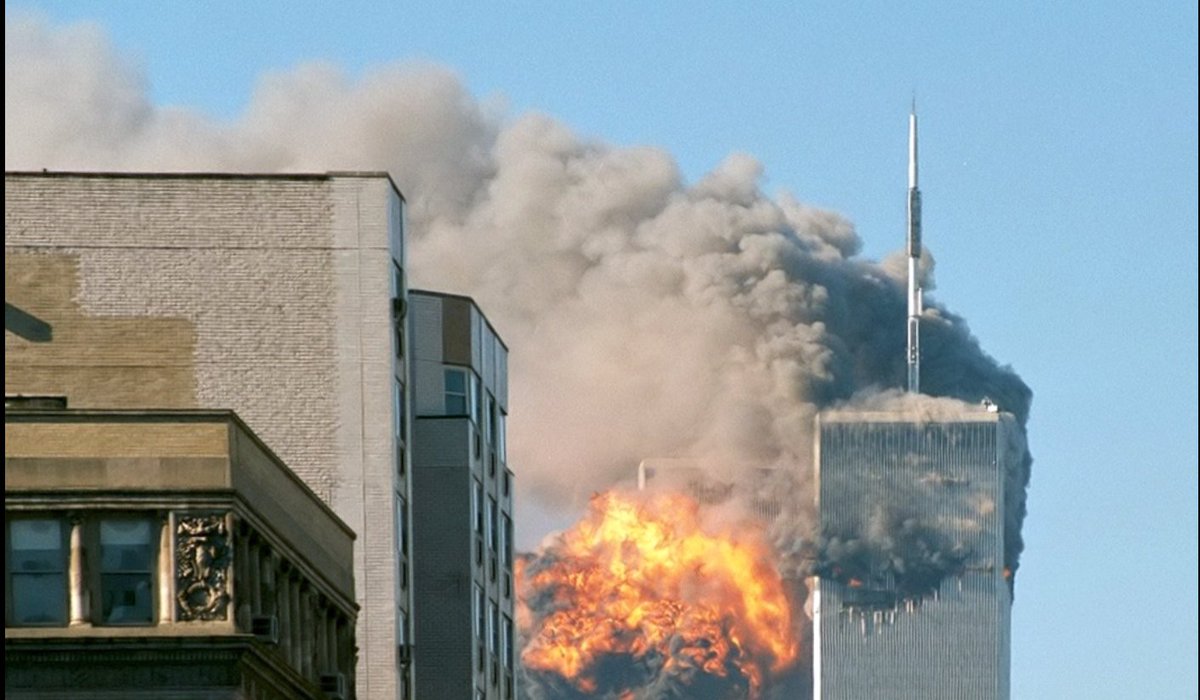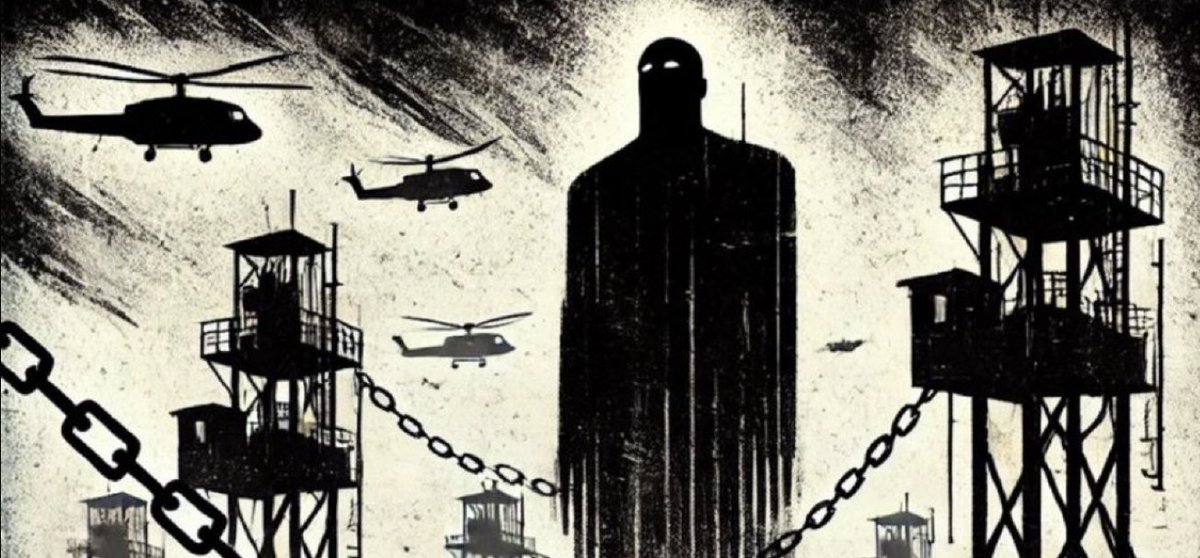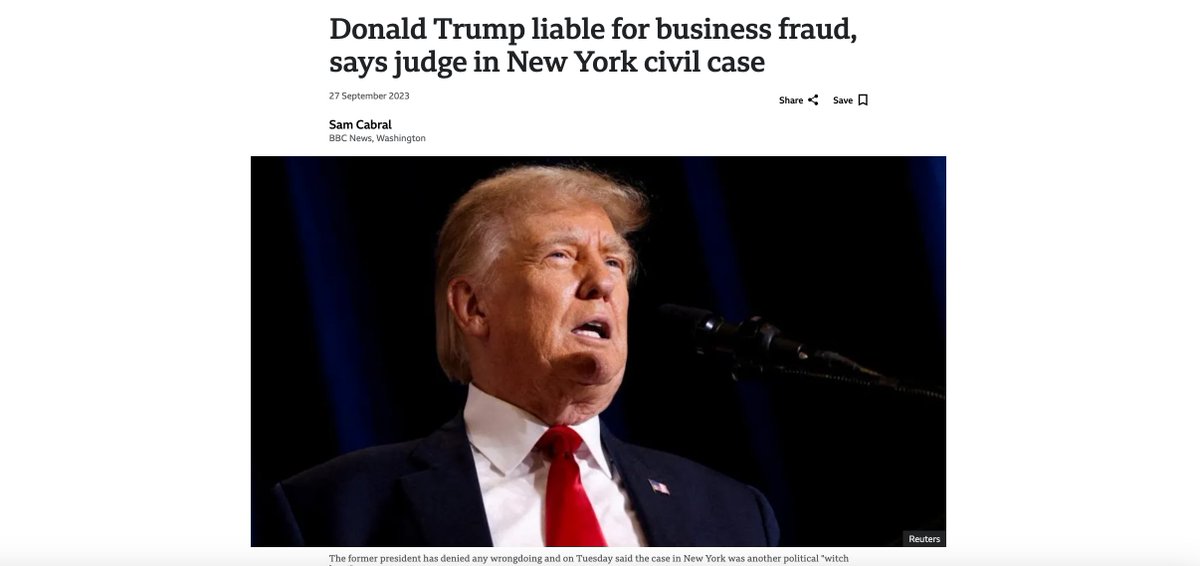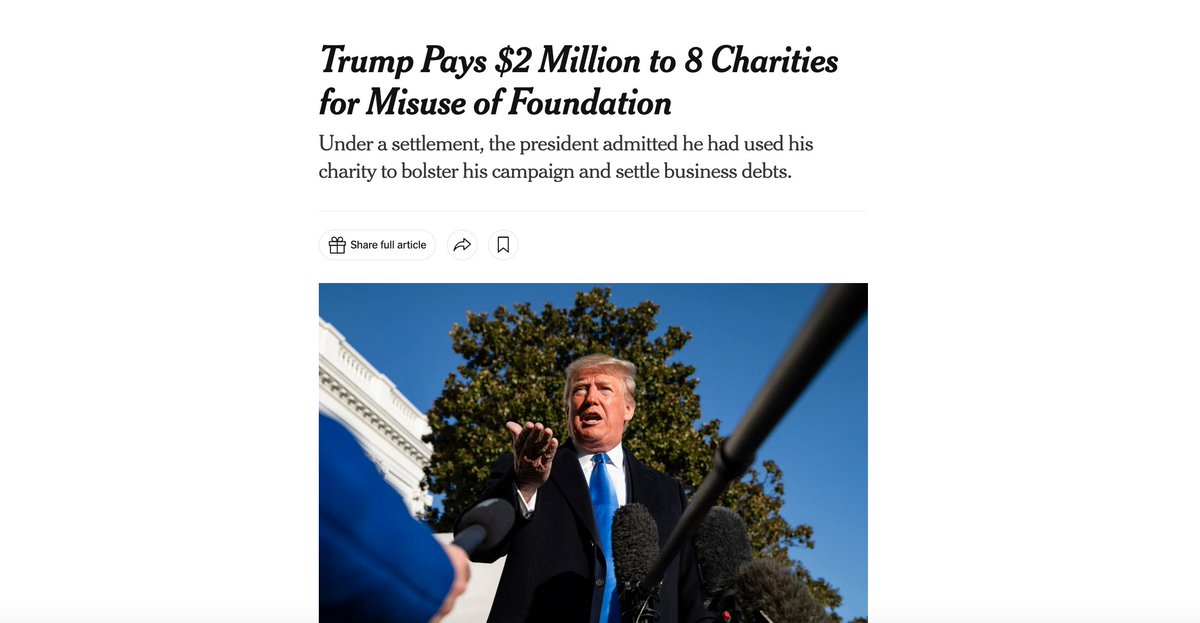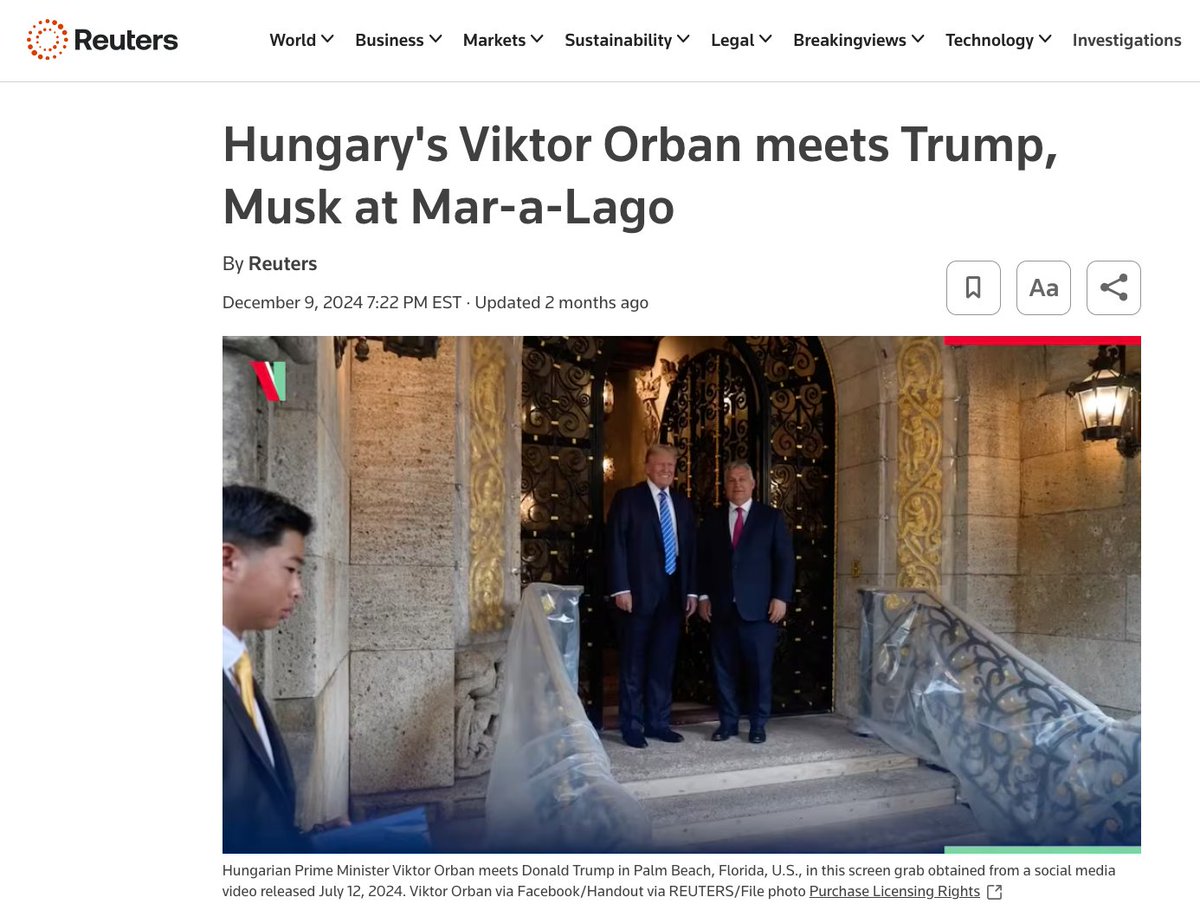Trump’s White House is now elevating J.D. Vance as a fearless truth-teller, but in reality, his prominence in today’s Oval Office confrontation with Ukrainian President Volodymyr Zelensky appears to have been a premeditated ambush.
This was not a diplomatic meeting—it was a performance, carefully staged to send a message: under Trump’s administration, Ukraine is no longer an ally of the United States.
By orchestrating this spectacle, Trump and his team are not just undermining Ukraine; they are actively escalating tensions, ensuring that the smoke blinds rather than illuminates.
This is not about ideology. It is about character.
J.D. Vance once likened Trump to Hitler. Now, he kneels before him.
Zelensky was given the chance to flee Kyiv. He said: “I need ammunition, not a ride.”
One man serves power. The other serves his people.
And yet, the Trump White House is now attempting a deliberate inversion of reality, manufacturing an image of Vance as the brave truth-teller while casting Zelensky as the ungrateful opportunist.
This is not just revisionism. It is something more insidious—a calculated reprogramming of the public mind, where virtue is punished, loyalty is submission, and the greatest sin is defying the leader’s chosen reality.
Trump does not treat Ukraine as an ally because, in his mind, it is not one. He has never hidden who he admires, nor who he believes his real allies are. Whether through reflex, compromise, or something more sinister, his foreign policy always bends toward one man—Vladimir Putin.
The same man who once warned that Trump would destroy democracy now lectures a wartime leader on gratitude.
History does not ask whether we saw the warning signs. It only asks what we did when they appeared.
And history is watching.
This was not a diplomatic meeting—it was a performance, carefully staged to send a message: under Trump’s administration, Ukraine is no longer an ally of the United States.
By orchestrating this spectacle, Trump and his team are not just undermining Ukraine; they are actively escalating tensions, ensuring that the smoke blinds rather than illuminates.
This is not about ideology. It is about character.
J.D. Vance once likened Trump to Hitler. Now, he kneels before him.
Zelensky was given the chance to flee Kyiv. He said: “I need ammunition, not a ride.”
One man serves power. The other serves his people.
And yet, the Trump White House is now attempting a deliberate inversion of reality, manufacturing an image of Vance as the brave truth-teller while casting Zelensky as the ungrateful opportunist.
This is not just revisionism. It is something more insidious—a calculated reprogramming of the public mind, where virtue is punished, loyalty is submission, and the greatest sin is defying the leader’s chosen reality.
Trump does not treat Ukraine as an ally because, in his mind, it is not one. He has never hidden who he admires, nor who he believes his real allies are. Whether through reflex, compromise, or something more sinister, his foreign policy always bends toward one man—Vladimir Putin.
The same man who once warned that Trump would destroy democracy now lectures a wartime leader on gratitude.
History does not ask whether we saw the warning signs. It only asks what we did when they appeared.
And history is watching.
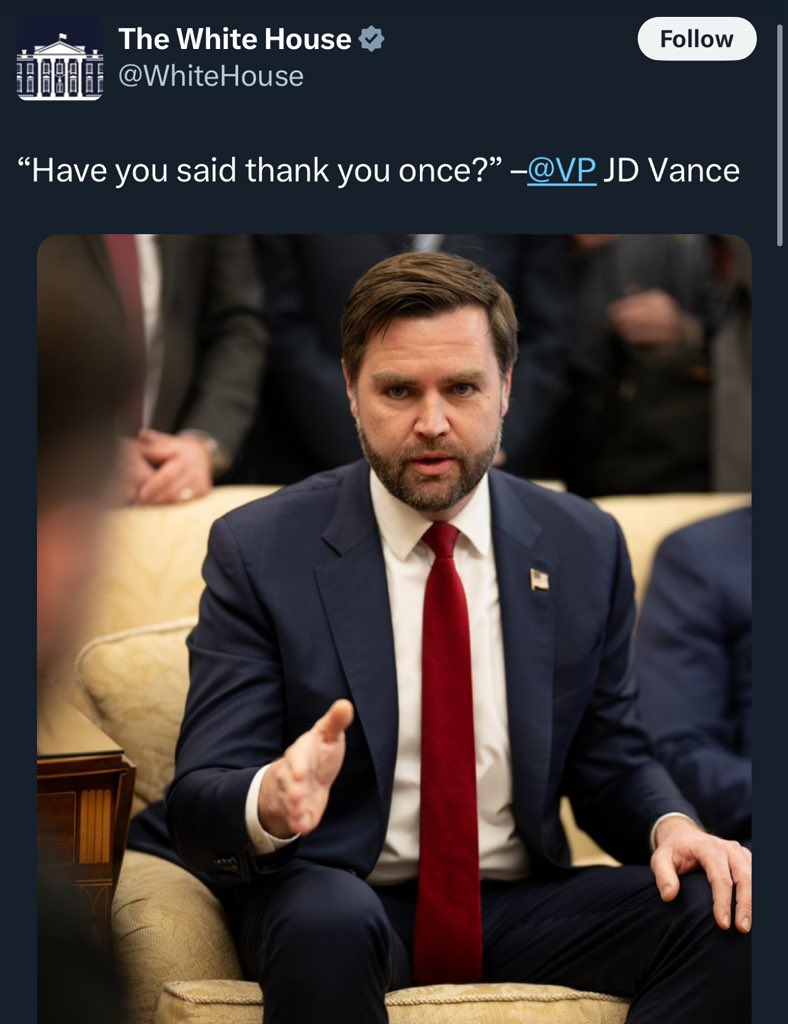
If you’ve ever wanted to support independent media, now is the time.
The Intellectualist aims to build an initial base of 1,000 subscribers, and we still have a long way to go. Your support would make all the difference in allowing us to continue.
buymeacoffee.com/theintellectua…
The Intellectualist aims to build an initial base of 1,000 subscribers, and we still have a long way to go. Your support would make all the difference in allowing us to continue.
buymeacoffee.com/theintellectua…
• • •
Missing some Tweet in this thread? You can try to
force a refresh


